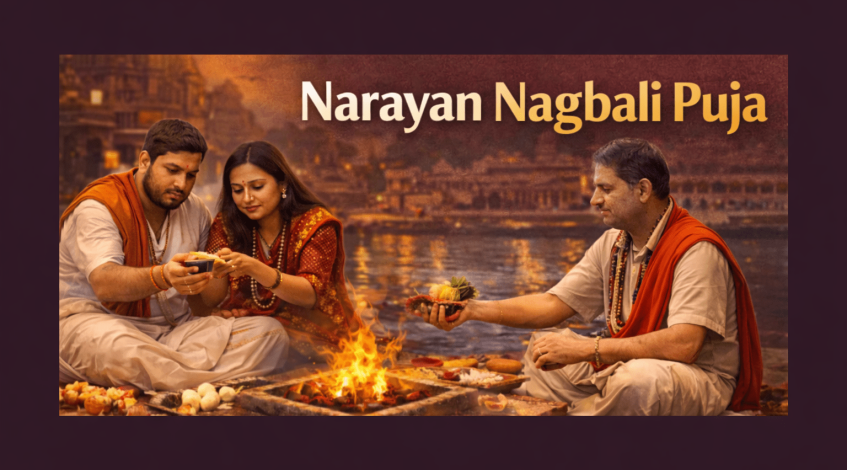Perform sacred Narayan Nagbali Puja with expert Pandit for ancestral peace. Book Online Now! Narayana Bali Pooja is performed to appease Lord Narayana for the unnatural death of any human or paternal dosha found in the horoscope.
Narayana Nagbali has two distinct rituals. Narayana Bali is performed to get rid of the curse of ancestors (Pitru Dosh/Pitru Shaap) while Nag Bali is performed to get rid of the sin of killing a snake, especially a cobra which is worshiped in India. Narayana Nagbali Puja is performed for problems like bad patch in business, wastage of money, family health problems, educational obstacles, obstacles in marriage. It is also performed to get rid of problems caused by curses of father, mother, brother, corpse, wife and minor churners. (Pitru shap, Pratashap, Matrushap, Bhatrushap, patnishap, matulshap).
Why do Narayan Nagbali?
If someone in the family gets an untimely or untimely disease, Narayana Nagbali has to be performed. If the rituals are performed properly after one’s death or if one does not perform pinddan or shraddha for 3 consecutive years then one has to visit Narayana Nagbali to get rid of the troubles caused by it.
Who can do Narayan Nagbali?
A person who has this type of dosha in his horoscope should do darshan of Narayana Nagbali. Both married and unmarried people can visit Narayana Nagbali. Only a woman cannot perform Tripindi Shraddha. Any male member of the family can perform Narayana Nagbali.
Benefits of worshiping Narayana Nagbali.
By seeing Narayana Nagbali one helps the known and unknown ancestors of the past 7 generations to attain moksha. This gives us the boon of our ancestors. This pooja also helps in the birth of a new baby. Puja also helps in good progress in professional life. Usually a man does everything possible for his family but sometimes forgets to perform rituals like Pinddan or Shraddha. This pooja helps the souls of our ancestors to attain moksha and thus half the work done by us is completed by this pooja. Pitseva (service to elders and ancestors) is more important than Chardham Yatra. This is achieved by performing Narayana Nagbali. One who helps his ancestors attain salvation, attains salvation for himself after death.


